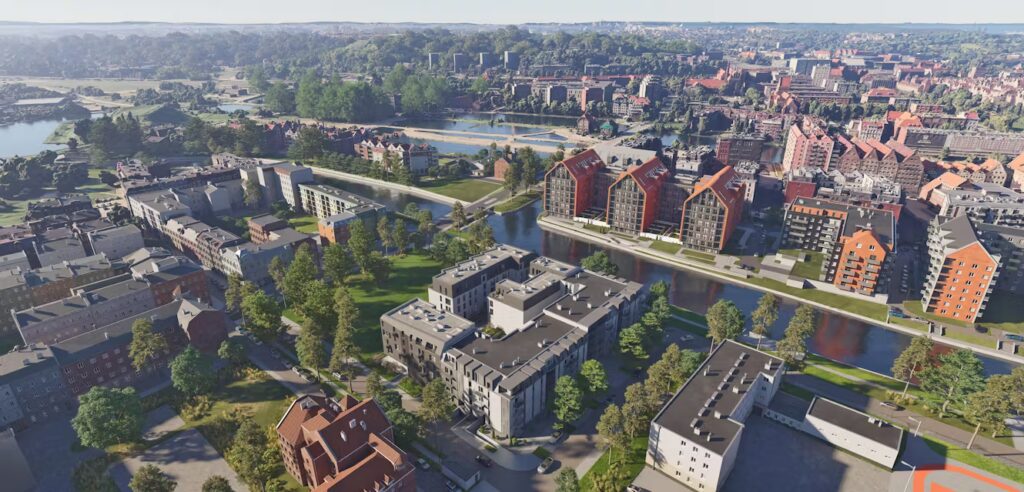In the world of real estate, the Multiple Listing Service (MLS) serves as a centralized platform where brokers share property listings and facilitate transactions efficiently. Translating this model to the domain of land development and private real estate investment communities opens new doors for collaboration, transparency, and opportunity. A Private MLS Network tailored for developer communities could revolutionize how deals are discovered, vetted, and executed, especially in an era increasingly reliant on technology and data.
What Is a Private MLS Network?
A Private MLS (Multiple Listing Service) is a secure, invitation-only platform where verified members—typically real estate developers, landowners, brokers, and institutional investors—can share listings, resources, and data. Unlike public MLS systems, which are regulated and accessible to licensed agents, a private MLS focuses on exclusivity, higher-value deals, and niche markets, often including off-market or pre-development opportunities.
This model offers a controlled ecosystem for participants with aligned interests, streamlining communication, enabling direct deal flow, and fostering trust-based partnerships.
Why Developer Communities Need It
Land and real estate development is a multi-faceted process involving acquisition, entitlement, design, permitting, financing, and construction. Each phase benefits from collaborative tools and data transparency. However, the current landscape is fragmented:
-
Developers rely on informal networks or scattered marketplaces.
-
Brokers juggle multiple tools with no central repository.
-
Off-market deals are often lost due to lack of exposure or due diligence inefficiencies.
A Private MLS tailored to developer communities solves these issues by providing:
-
Verified Deal Flow: A trusted environment to access exclusive or pre-market properties.
-
Specialized Filters: Tools tailored to developers—zoning types, lot sizes, entitlements, environmental data, etc.
-
Community Insights: Peer reviews, deal history, and commentary to inform decision-making.
Key Features of a Developer-Centric MLS
To meet the needs of this niche audience, a Private MLS should go beyond traditional listings. Here are essential features:
Data-Rich Listings
-
-
Include zoning data, topography, utility access, floodplain analysis, and preliminary feasibility studies.
-
Option to upload site plans, surveys, or environmental reports.
-
Smart tagging for use cases (e.g., multifamily, commercial, build-to-rent).
-
User Verification and Access Control
-
-
Vetting of users (e.g., developers, land use attorneys, planners).
-
Role-based permissions: some users may only view data, others may list properties or initiate transactions.
-
Deal Collaboration Tools
-
-
Secure document sharing and messaging.
-
Option to form temporary project groups or joint ventures within the platform.
-
Built-in NDA support to manage sensitive or proprietary information.
-
Market Intelligence
-
-
Data analytics dashboard showing market comps, zoning changes, and pipeline developments.
-
Real-time tracking of development trends by region.
-
Integration with Planning Departments and GIS Tools
-
-
API integrations for pulling parcel data, zoning overlays, and city planning updates.
-
Embedded GIS map views with layered zoning and infrastructure visuals.
-
Use Case Scenarios
Urban Infill Projects
A small developer looking for underutilized lots in urban neighborhoods can filter listings by zoning (e.g., RM-1, C-2), overlay districts, and walkability scores. The MLS shows listings with preliminary massing studies, seller contact info, and local comp sales.
Land Assemblage Deals
A broker or developer can list parcels being quietly marketed for assemblage. Members within the MLS are notified when adjacent lots hit the system, enabling proactive outreach and parcel stitching strategies.
Institutional Investor Acquisition
A private equity firm seeking entitled land for multifamily construction can access only pre-vetted listings, complete with site plans and approved permits, reducing due diligence time.
Building the Network: Considerations and Challenges
Trust and Exclusivity
A private MLS must be seen as high-value. Admission criteria should be clear—perhaps requiring a track record of transactions or sponsorship by an existing member.
Technology Infrastructure
To ensure reliability and performance, it should be built on secure, scalable cloud infrastructure with mobile access, GIS capabilities, and data encryption. Additionally, custom development using modern frameworks such as React and Node.js helps ensure future-proofing and adaptability as the platform evolves.
Legal and Compliance
Handling confidential land data and potential deal information requires robust compliance, including GDPR/data privacy protections, clear terms of use, and structured access levels.
Onboarding and Network Effects
The platform’s value grows with its user base. Early adopters—such as regional developer alliances or land use firms—can become core contributors. Workshops, demos, and case studies can drive adoption.
Future Opportunities
As adoption grows, a Private MLS can evolve into a development intelligence platform, incorporating:
-
Predictive analytics for land values.
-
AI-based zoning interpretations.
-
Blockchain-backed property records and smart contracts.
Over time, the platform could even evolve into a capital matchmaking tool—connecting developers with funding sources based on project type, location, and return profile.
Conclusion
For decades, the traditional MLS model has powered residential real estate. Now, by applying its principles to the nuanced, high-stakes world of real estate development—through a private, curated platform—new opportunities emerge. In particular, it streamlines deal discovery, enhances transparency, and ultimately empowers developer communities to build smarter, faster, and with greater confidence.
By investing in a Private MLS Network now, stakeholders can position themselves at the center of a rapidly digitizing industry, where collaboration and data are as vital as capital and land.
Frequently Asked Questions
What is the difference between a public MLS and a private MLS for developers?
A public MLS (Multiple Listing Service) is typically used by licensed real estate agents to list and access residential properties. It’s governed by regional rules and is accessible to a wide audience, often feeding into public platforms like Zillow or Realtor.com.
In contrast, a private MLS for developers is a secure, invitation-only platform designed specifically for real estate development professionals. It focuses on off-market, land, or pre-entitled deals, includes development-specific filters (e.g., zoning data, FAR, entitlements), and facilitates collaboration among vetted members such as landowners, developers, planners, and brokers. It’s more about quality and control than public exposure.
Who benefits most from a private MLS network for developer communities?
The primary beneficiaries include:
-
Real estate developers, who gain access to exclusive, relevant land and infill opportunities with detailed due diligence data.
-
Landowners, who can discreetly market property to qualified buyers without listing publicly.
-
Brokers, who can match clients with targeted buyers or sellers in a trusted, high-value network.
-
Institutional investors, who can source pre-vetted, entitlement-ready projects with high ROI potential.
-
Municipal planners or consultants, who may participate in early-stage discussions or analysis on development feasibility.
What types of listings would appear on a private MLS for developers?
Listings on a developer-focused MLS differ from residential listings. Examples include:
-
Raw land zoned for residential, commercial, or mixed-use development.
-
Pre-entitled or shovel-ready projects.
-
Infill lots in urban markets with redevelopment potential.
-
Assemblage opportunities—properties that could be combined for higher density.
-
Expired or withdrawn listings with unique zoning characteristics.
-
Distressed or foreclosure land assets held by banks or institutions.
Listings often include parcel maps, zoning overlays, surveys, environmental reports, and pro forma financials.
What are the key features to include in a private MLS platform for developers?
A successful private MLS platform should include:
-
Advanced filters: zoning code, land use type, acreage, density potential, proximity to utilities, etc.
-
Interactive GIS maps with zoning layers and parcel data.
-
Secure deal rooms for sharing documents under NDA.
-
Automated alerts for new listings matching saved criteria.
-
Communication tools for collaboration between users.
-
Verified user access to ensure only qualified professionals are admitted.
-
Analytics dashboard to assess market trends and comparable development data.













